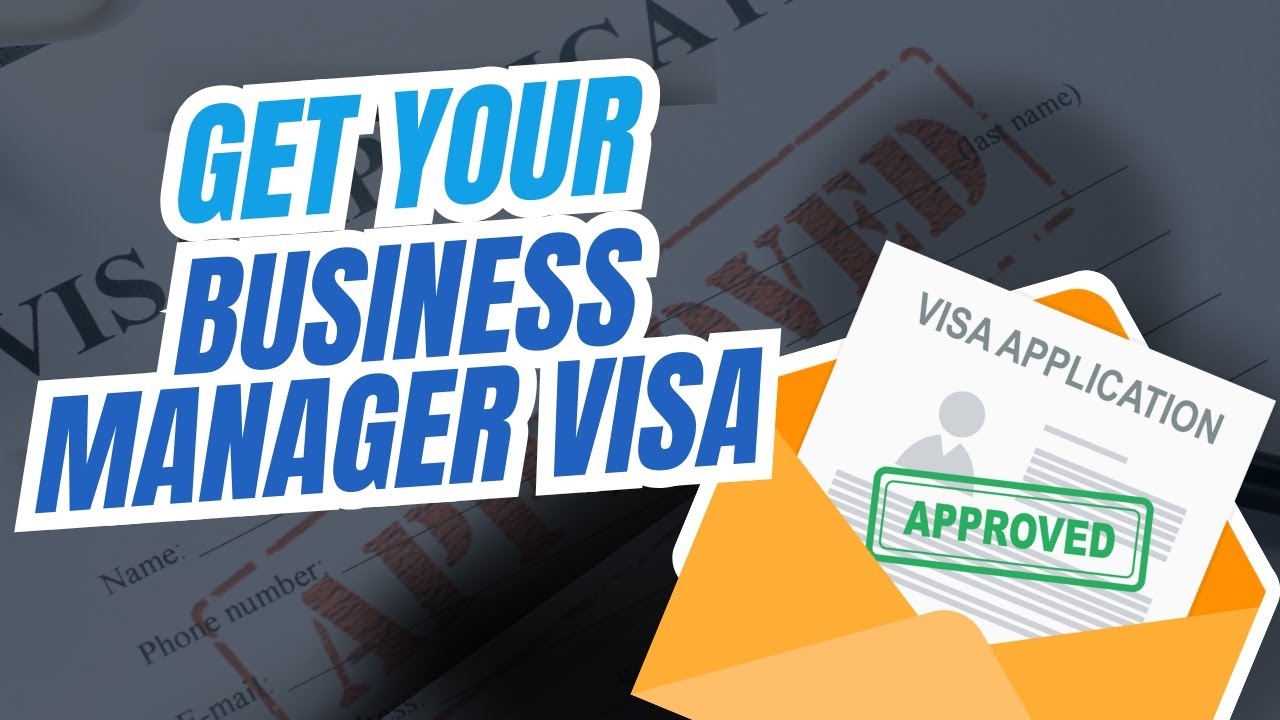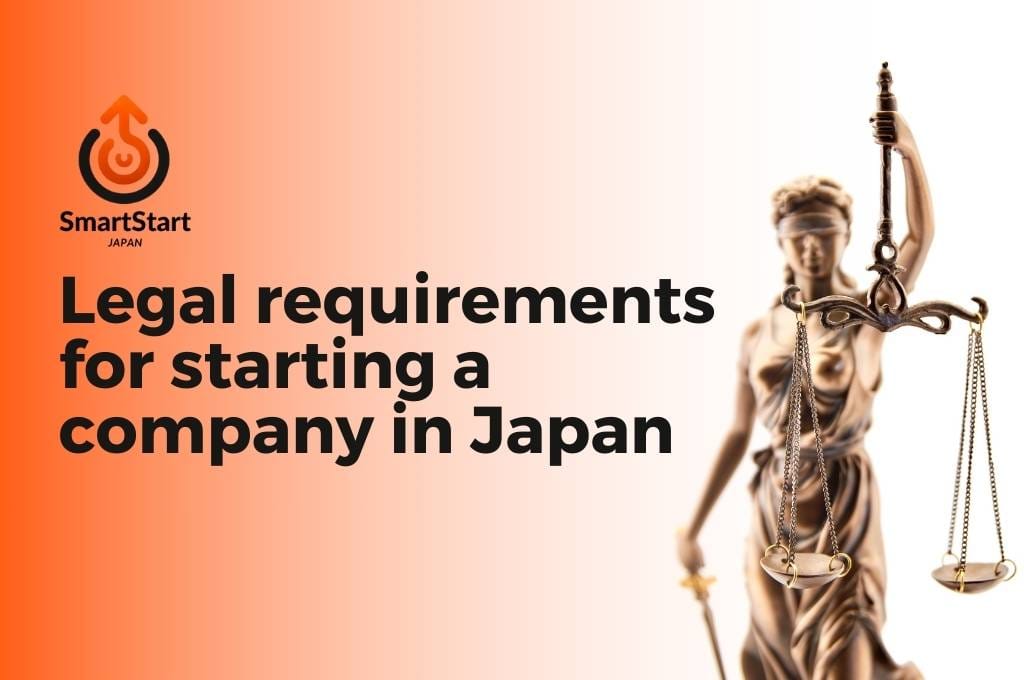Why Start a Travel Business in Japan?
Is now the right time to start a travel business in Japan? With 36.87 million international visitors in 2024 surpassing pre-pandemic records by 16%, and projections exceeding 40 million for 2025, the answer is a resounding yes. But here’s what most entrepreneurs don’t know: a major regulatory change in October 2025 will make it 6x harder for foreign entrepreneurs to enter this market.
At SmartStart Japan, we’ve helped over 50 foreign-owned businesses successfully launch in Japan with a 100% visa approval rate. Let us show you exactly how to capitalize on Japan’s $53.3 billion tourism boom before the window of opportunity narrows.
- Why Start a Travel Business in Japan?
- Why Japan's Tourism Boom Creates Unprecedented Business Opportunities
- Critical Alert: October 2025 Regulatory Changes
- Understanding Japan's Travel Business License Requirements
- Step-by-Step: Launching Your Travel Business in Japan
- Step 5 – Post-Incorporation Steps: Ensuring Tax Compliance and Regulatory Filings
- Step 6: Get Your Travel Business License Approved
- Step 7 – Establish Strong Partnerships and Secure Reliable Suppliers
- Need Expert Guidance to Launch Your Travel Business in Japan?
Why Japan’s Tourism Boom Creates Unprecedented Business Opportunities
Japan’s tourism industry has undergone a remarkable transformation, emerging from the pandemic to become the country’s second-largest export sector after automobiles. The recovery hasn’t just returned to pre-pandemic levels—it’s exceeded them dramatically. Tourism spending reached $53.3 billion in 2024, representing a 16% increase over 2019 figures, while average visitor spending climbed to ¥227,000 (~$1,493 USD), up 6.6% from 2023.
What makes this growth particularly compelling for new businesses is the government’s unprecedented commitment to tourism development. The Japan Tourism Agency’s New Tourism Nation Promotion Basic Plan has allocated ¥15.82 billion specifically for digital transformation initiatives in tourism, signaling a clear focus on modernization and innovation. The plan sets ambitious targets of 60 million visitors generating ¥15 trillion in revenue by 2030—nearly doubling current figures.
This isn’t just wishful thinking. Japan’s infrastructure investments, visa liberalization policies, and strategic partnerships with key markets demonstrate serious commitment to these goals. The designation of 100 sustainable tourism regions, enhanced DMO (Destination Management Organization) capabilities, and focus on regional distribution mean opportunities extend far beyond Tokyo and Kyoto.

Expo 2025: Your Gateway Opportunity
Expo 2025 Osaka, running from April 13 to October 13, 2025, represents more than a temporary spike in visitors. With 28.2 million projected attendees and an expected 10% international attendance rate, the event showcases Japan’s Society 5.0 vision—integrating cutting-edge technology with human-centered solutions. The permanent infrastructure being developed in the Yumeshima area will create lasting opportunities for travel businesses, particularly those specializing in MICE (Meetings, Incentives, Conferences, Exhibitions) and corporate travel.
The expo’s theme, “Designing Future Society for Our Lives,” aligns perfectly with emerging travel trends toward sustainability, technology integration, and meaningful experiences. Smart entrepreneurs are already positioning themselves to capture not just expo traffic but the long-term business relationships and partnerships that such global events generate.
Critical Alert: October 2025 Regulatory Changes
This is the most important section of this guide. Japan will implement significantly stricter visa requirements starting October 2025 that will fundamentally change the landscape for foreign entrepreneurs. The changes are designed to ensure only well-capitalized, serious businesses enter the market—but they also create a massive barrier for startups and smaller operators.
Current Requirements vs. New Requirements (October 2025):
Capital Requirements:
- Now: 5 million yen (~$33,000 USD)
- October 2025: 30 million yen (~$200,000 USD) – a 600% increase
Employment Obligations:
- Now: No mandatory Japanese staff requirement
- October 2025: Must hire at least one full-time Japanese resident
Documentation Standards:
- Now: Standard business plan and financial projections
- October 2025: Enhanced proof of business viability and market research
The implications are clear: entering Japan’s travel market will become exponentially more difficult and expensive after October 2025. Our urgent recommendation is to begin your application process immediately. Our team can fast-track your Business Manager Visa application in 2-3 months, ensuring you enter the market under current, more favorable conditions.
Understanding Japan’s Travel Business License Requirements
Unlike many countries where travel businesses can operate with minimal regulation, Japan requires specific licenses based on the Travel Agency Act. The licensing system reflects Japan’s commitment to consumer protection and industry standards, but it also means careful planning is essential for market entry.
The licensing structure divides travel businesses into distinct categories based on their scope of operations. Each license type carries different capital requirements, operational limitations, and growth potential. Understanding these distinctions is crucial for choosing the right entry strategy for your business.
Travel Business License Classifications
Class 1 License represents the gold standard for travel businesses in Japan. It allows complete operational freedom, including organizing both domestic and international tours, creating recruitment-based package tours, and operating across all market segments. However, this freedom comes at a cost: 70 million JPY in required capital plus a matching security deposit. For businesses with ambitious growth plans and sufficient capital, Class 1 provides unlimited potential.
Class 2 License offers a balanced middle ground that works well for most foreign-owned travel businesses. You can organize domestic tours and sell international packages created by others, though you cannot create recruitment-type overseas tours yourself. The capital requirement of 11 million JPY is more manageable, making this the sweet spot for serious businesses that don’t need full Class 1 capabilities immediately.
Class 3 License serves as an entry point for businesses focusing exclusively on domestic travel. With a 3 million JPY capital requirement, it’s accessible to smaller operators but limits growth potential. Many businesses start here and upgrade as they establish market presence and generate revenue.
Travel Agency Registration is fundamentally different—it’s for intermediaries only. You cannot organize tours but can sell packages created by licensed operators. This requires minimal capital but also offers limited profit margins and growth potential.
The JATA/ANTA Advantage: 80% Security Deposit Reduction
Here’s a strategy that can save you millions of yen: joining the Japan Association of Travel Agents (JATA) or All Nippon Travel Agents Association (ANTA) reduces your required security deposit by 80%. For a Class 1 license, this means reducing your deposit from 70 million to 14 million yen—a 56 million yen savings. Beyond the financial benefits, membership provides credibility, networking opportunities, and regulatory support that prove invaluable for foreign-owned businesses navigating the Japanese market.
Step-by-Step: Launching Your Travel Business in Japan
Step 1: Strategic Business Structure Selection
The choice between Kabushiki Kaisha (KK) and Godo Kaisha (GK) structures impacts everything from your company’s credibility to its operational flexibility. While both offer limited liability protection, they serve different strategic purposes in the Japanese market.
A Kabushiki Kaisha (Stock Company) remains the gold standard for businesses seeking maximum credibility with Japanese partners, customers, and financial institutions. Despite higher incorporation costs (our fee: ¥431,500 including all government fees) and more complex administration, a KK structure signals serious long-term commitment to the Japanese market. It’s particularly valuable for travel businesses planning to work with established Japanese hotels, transportation companies, and tourism boards who often prefer or require KK partners.
The Godo Kaisha (Limited Liability Company) has gained popularity among foreign entrepreneurs for good reason. With lower incorporation costs (our fee: ¥186,500) and simpler administration, it provides an efficient entry path while maintaining professional credibility. Digital-first travel businesses, niche tour operators, and businesses primarily serving international clients often find the GK structure perfectly adequate. You can always convert to a KK structure later as your business grows.
Our comprehensive guide to company structures provides detailed comparisons and case studies to help you make the right choice.
Step 2: Securing Your Official Business Address
Japanese law mandates that travel businesses maintain a physical office—virtual offices are explicitly prohibited for licensed travel operators. This requirement stems from consumer protection concerns and the need for regulatory oversight, but it also serves a practical purpose: Japanese customers expect legitimate businesses to have a physical presence.
The Tokyo office market offers various solutions at different price points. Serviced offices, ranging from ¥20,000-50,000 monthly, provide an excellent starting point with included utilities, reception services, and meeting room access. These facilities often cater to international businesses and provide bilingual support, making them ideal for foreign entrepreneurs. Shared offices with dedicated addresses (¥30,000-80,000/month) offer a middle ground, while traditional office leases (¥200,000-300,000/month in central Tokyo) become necessary as you scale operations.
Location matters significantly in Japan’s travel industry. Proximity to major stations enhances credibility and convenience for both partners and clients. Areas like Shinjuku, Shibuya, and Tokyo Station command premium rents but provide unmatched accessibility and prestige. Our rental office guide includes neighborhood analyses and negotiation strategies specific to foreign businesses.
Step 3: Navigating Japan’s Banking System
Opening a corporate bank account remains one of the most challenging aspects of establishing a business in Japan, particularly for foreign-owned companies. Banks’ risk-averse nature and language barriers can turn what should be a simple process into a months-long ordeal without proper preparation.
Shinsei Bank has emerged as the go-to option for foreign businesses, offering full English support and online banking capabilities. Their understanding of international business needs and streamlined application process can save weeks of frustration. Seven Bank provides another foreigner-friendly option, particularly for smaller businesses. For companies requiring comprehensive banking services, including international transfers and credit facilities, establishing relationships with megabanks like MUFG or Mizuho becomes necessary, though these require stronger documentation and often Japanese language capability.
The key to successful bank account opening lies in preparation. Banks want to see detailed business plans (in Japanese), proof of office lease, capital verification, and increasingly, existing business relationships in Japan. Our banking guide includes document templates and bank-specific strategies that have achieved a 95% first-attempt success rate for our clients.
Step 4: Securing Your Certified Travel Supervisor
Every travel business in Japan must employ at least one full-time Certified Travel Supervisor (旅行業務取扱管理者). This isn’t merely a regulatory checkbox—this person becomes legally responsible for ensuring your business operates within Japanese travel law. For businesses employing 10 or more people, additional supervisors are required.
The certification comes in two levels: Domestic Travel Supervisor and General Travel Supervisor (for international operations). Finding qualified supervisors can be challenging, as demand exceeds supply, particularly for supervisors willing to work with foreign-owned startups. Options include hiring experienced professionals from established agencies (expect ¥4-6 million annual salary), supporting existing staff to obtain certification (6-12 month process), or partnering with certified consultants for smaller operations.
Step 5: License Application and Approval Process
The travel business license application process typically takes 2-3 months but can extend longer without proper preparation. Beyond basic requirements like business registration certificates and financial proof, authorities examine your business plan’s viability, marketing strategy, and operational procedures in detail. They want assurance that your business can deliver promised services and protect consumer interests.
Documentation must be submitted in Japanese, following specific formatting requirements that vary by prefecture. Our application templates and review process ensure first-time approval in over 90% of cases. The license remains valid for 5 years before requiring renewal, giving you ample time to establish and grow your operations.
Visa & Residency Requirements for Foreign Entrepreneurs
For non-Japanese entrepreneurs looking to establish a travel business, obtaining the right visa and residency status is essential. The two most relevant options are:
- Business Manager Visa—Designed for foreign entrepreneurs, this visa requires proof of financial stability, a physical business location, and a clear operational plan. For additional information, read our guide on How to Get a Business Manager Visa in Japan.
- Startup Visa – Suitable for those investing in Japan, this visa provides an alternative pathway for business owners who contribute significant capital to the country’s economy. o better understand the process and requirements, you can also refer to this in-depth guide on obtaining a Startup Visa in Japan.
Step 5 – Post-Incorporation Steps: Ensuring Tax Compliance and Regulatory Filings
Launching a travel business in Japan doesn’t end with incorporation. To operate legally and avoid penalties, companies must fulfill mandatory tax filings and registrations with national and local authorities. Japan has strict corporate tax laws, and failing to comply with deadlines can result in steep penalties. Additionally, businesses hiring employees must complete labor and social insurance registrations.
If a company hires employees, it must register for labor insurance and social security programs to ensure compliance with Japan’s employment laws. Businesses must notify tax authorities at the national, prefectural, and municipal levels regarding their incorporation and tax obligations.
Mandatory Post-Incorporation Filings and Registrations
| Document | Where to File | Deadline | Description |
|---|---|---|---|
| Notification of Incorporation (法人設立届出書) | District Tax Office (税務署, Zeimusho) | Within 2 months after company registration | Officially informs tax authorities of the company’s establishment. |
| Notification of Establishment of an Office Paying Salaries (給与支払 事務所等の開設届出書) | District Tax Office (Zeimusho) | Within 1 month after hiring staff | Notifies tax authorities about the commencement of salary payments to employees. |
| Application for Blue Form Tax Return (青色申告承認申請書) | District Tax Office (Zeimusho) | Before the earlier of 3 months after incorporation or the end of the first business year | Allows businesses to benefit from favorable tax treatments, such as loss carryforwards. |
| Prefectural and Municipal Tax Notifications | Prefectural Tax Office (都道府県税事務所, Todofukenzei Jimusho) and Municipal Tax Office (市区町村役所, Shikuchouson Yakusho) | Within 15 days after starting business operations | Registers the company for local taxation purposes. |
| Labor Insurance Registration (労働保険関係成立届) | Labor Standards Inspection Office (労働基準監督署, Rōdō Kijun Kantokusho) or Public Employment Security Office (ハローワーク, Hello Work) | Within 10 days of hiring the first employee | Enrolls the company in Workers’ Accident Compensation and Employment Insurance. |
| Employment Regulations Submission (就業規則届出) | Labor Standards Inspection Office (Rōdō Kijun Kantokusho) | Required if the company employs 10 or more workers | Ensures workplace policies comply with Japan’s Labor Standards Act. |
| Health & Pension Insurance Registration (健康保険・ 厚生年金保険 新規適用届) | Japan Pension Service (日本年金機構, Nihon Nenkin Kiko) | Within 5 days of hiring employees | Registers employees for national health and pension insurance programs. |
| Employment Insurance Registration (雇用保険適用 事業所設置届) | Public Employment Security Office (ハローワーク, Hello Work) | Within 10 days of hiring the first worker | Enrolls the company in the employment insurance system. |
Step 6: Get Your Travel Business License Approved
Once your company is legally registered, the next critical step is obtaining a Travel Business License. In Japan, the travel industry is heavily regulated, and businesses cannot legally sell tours, arrange travel services, or book transportation without proper licensing. This process ensures consumer protection and industry compliance, but it also means that strict requirements and documentation must be met.
Application Process & Documentation
Applying for a Travel Business License in Japan requires detailed paperwork and strict compliance with regulatory guidelines. To successfully obtain approval, your business must submit:
- Business Registration Certificate – Proof that your company is officially registered.
- Financial Proof of Capital Deposit – Ensuring the company meets the minimum capital requirements for the selected license class.
- Office Lease Contract – Verification of a physical office location, as travel businesses cannot operate remotely.
- Appointment of a Certified Travel Supervisor – A legally required individual responsible for ensuring compliance with travel industry laws.
In addition to meeting these requirements, businesses must pay the application fee and allow time for license processing:
- Class 1 Travel Business License – Costs 90,000 JPY, with an approval timeline of 2–3 months.
- Class 2 & 3 Travel Business Licenses – Fees vary based on the prefecture, with an estimated processing time of 1–2 months.
Appoint a Certified Travel Supervisor
A key requirement for all travel businesses in Japan is appointing at least one full-time Certified Travel Supervisor. This position is responsible for regulatory compliance, safety oversight, and business accountability.
- The Certified Travel Supervisor must hold an official qualification, either as a General Travel Supervisor or Domestic Travel Supervisor, depending on the services offered.
- If the company employs 10 or more workers, an additional supervisor is required to maintain legal compliance.
For startups, finding a qualified supervisor can be challenging, but hiring an experienced professional or having a co-founder obtain the necessary certification can streamline the process.

Step 7 – Establish Strong Partnerships and Secure Reliable Suppliers
Launching a travel business in Japan isn’t just about obtaining licenses and setting up an office—success depends on building strong partnerships with key industry players. Whether you’re crafting luxury tours, cultural experiences, or adventure packages, having reliable suppliers is crucial for ensuring a seamless experience for your customers.
Partnering with Hotels, Airlines, and Local Vendors
One of the most valuable assets in the travel industry is access to quality accommodations, transportation, and unique experiences. To stay competitive, your business must build and maintain strong relationships with service providers in Japan, including:
- Hotels & Traditional Ryokan Inns – Partnering with well-established hotels and authentic Japanese Ryokan(traditional inns) can provide your clients with an unforgettable travel experience. Many travelers seek culturally immersive stays, so working with onsen (hot spring) resorts, temple lodgings, and boutique hotels can give your business an edge.
- Airlines & Japan Rail Pass (JR Pass) Distributors – Offering convenient domestic and international travel solutions is essential. Establishing direct contracts with airlines and JR Pass providers can allow your company to bundle transportation services into your packages, making it easier for travelers to explore Japan.
- Local Tour Operators & Experience Providers – Japan’s tourism industry thrives on curated experiences. Collaborating with local tour guides, cultural activity organizers, and adventure tourism providers (such as ski resorts, diving centers, and hiking guides) will enhance your offerings and help differentiate your services from competitors.
Building these partnerships requires negotiation and relationship management. Hotels and airlines may offer special rates, commissions, or exclusive package deals if they see value in your business. Establishing trust and reliability with vendors ensures long-term success and priority bookings for your clients.
Understanding Distribution Channels
Even with the best travel packages, your business won’t succeed without a solid distribution strategy. Japan’s travel market is highly digital, and customers rely on multiple channels when booking their trips. To maximize sales and reach a broader audience, businesses should leverage a mix of:
- Direct Bookings via Your Website – Having a well-designed, mobile-friendly website with a clear booking system is essential for direct sales. Offering discounts for direct bookings can help drive customers away from third-party platforms and toward your own services.
- Online Travel Agencies (OTAs) – Platforms like Rakuten Travel, Jalan, Klook, and GetYourGuide dominate Japan’s online travel market. Listing your services on these platforms can significantly increase visibility and attract international travelers who rely on these trusted brands for bookings.
- Affiliate Networks & Travel Platforms – Collaborating with influencers, travel bloggers, and affiliate networks can help promote your business to niche audiences. Many travelers rely on word-of-mouth and expert recommendations, so offering commission-based incentives to affiliates can drive bookings.
Need Expert Guidance to Launch Your Travel Business in Japan?
If you’re looking for personalized assistance in setting up and scaling your travel business in Japan, our expert team is just an email away. From navigating business registration and licensing to understanding corporate taxes and compliance, we’re here to help you every step of the way.
Get in touch with us today, and let’s turn your vision into a thriving business in Japan! With the right strategy and support, you can confidently enter the Japanese market and unlock its full potential.





